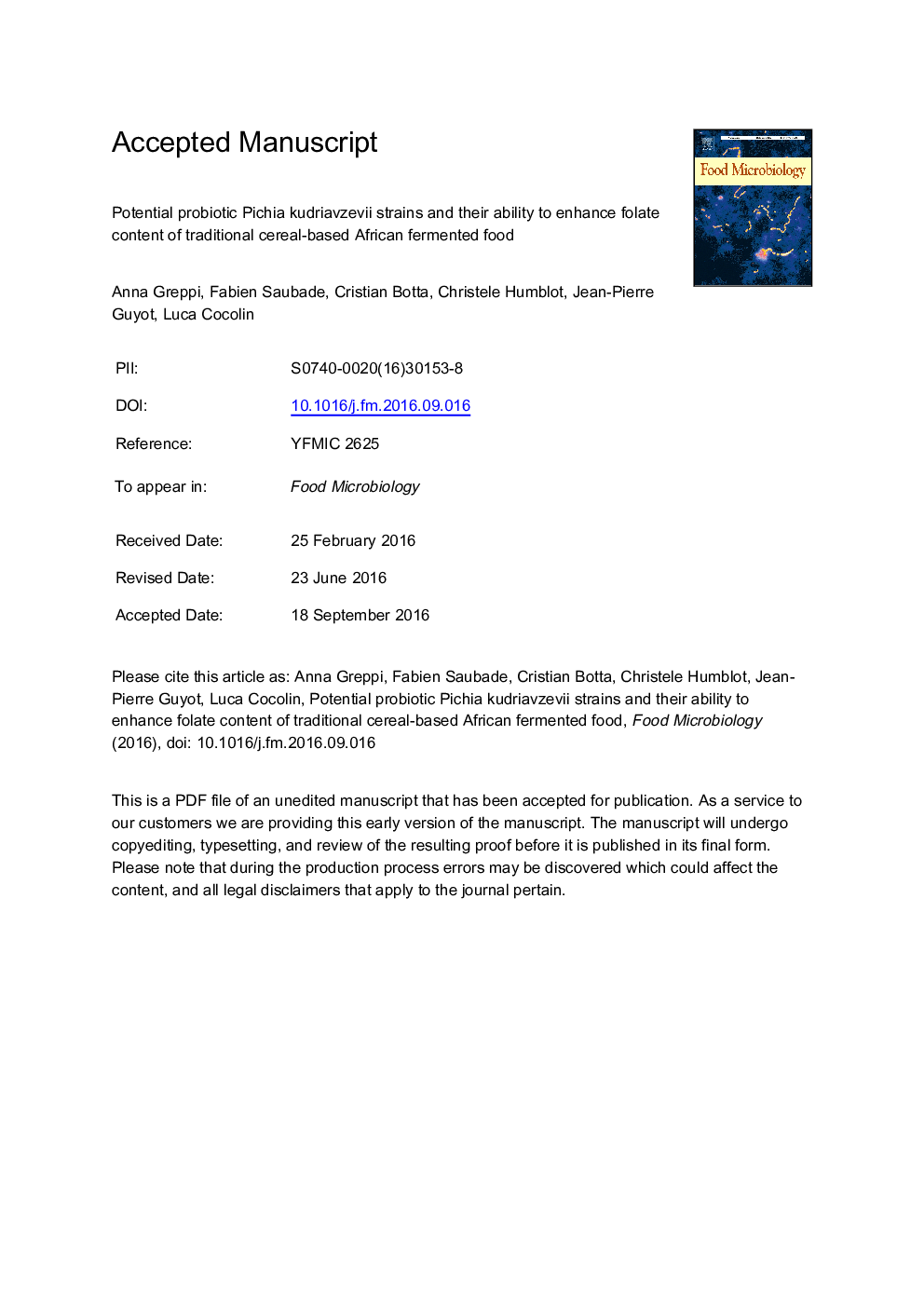| Article ID | Journal | Published Year | Pages | File Type |
|---|---|---|---|---|
| 8843638 | Food Microbiology | 2017 | 81 Pages |
Abstract
With the aim of selecting starter cultures with interesting probiotic potential and with the ability to produce folate in a food matrix, yeast strains isolated from fermented cereal-based African foods were investigated. A total of 93 yeast strains were screened for their tolerance to pH 2 and 0.3% of bile salts. Pichia kudriavzevii isolates gave the best results. Selected P. kudriavzevii strains were tested for survival to the simulated human digestion and for adhesion to Caco-2 cells. Moreover, presence of folate biosynthesis genes was verified and production of extra and intra-cellular folate determined during growth in culture medium. 31% of yeast strains could tolerate pH 2, while 99% bile salts. Survival rate after simulated digestion ranged between 11 and 45%, while adhesion rate between 12 and 40%. Folate production was mainly intracellular, maximum after 24 h of growth. To be closer to traditional cereal-based fermentations, a P. kudriavzevii strain with good probiotic potential was co-inoculated with Lactobacillus fermentum strains in a pearl millet gruel. This resulted in in situ folate production that peaked after 4 h. The use of strains with both probiotic and nutritional enrichment properties may have a greater impact for the consumers.
Related Topics
Life Sciences
Agricultural and Biological Sciences
Food Science
Authors
Anna Greppi, Fabien Saubade, Cristian Botta, Christèle Humblot, Jean-Pierre Guyot, Luca Cocolin,
